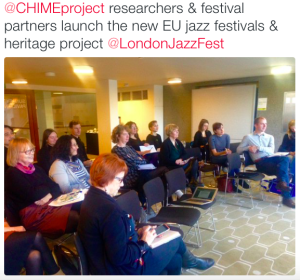Festivals are international cultural practices, taking plural forms and expressions across the world. They offer an empirical lens to enrich our understanding about how tangible and intangible cultural heritage combine, collide, conflict and cohere. Festivals are a spatially and temporally bounded public sphere, a break from normality that surfaces and reveals understandings of and approaches to culture and heritage in very different contexts.
A new report produced by the Urban Institute with partners at the African Centre for Cities explores how festivals are integrative sites between tangible and intangible heritage in the context of the Sustainable Development Goals. Professor Beth Perry has been working with a network of academics and practitioners in South Africa, Kenya, Sweden, the Netherlands and the UK to explore how culture, and cultural heritage in particular, can play a role in supporting more just urban transformations. The network has addressed this question through the lens of festivals, drawing on international cases from CHIME. The 18 festivals in the report focus on the relationship between global frameworks for action and local cultural practices and learning.
The report highlights concerns over implicit cultural and instrumental biases which inform policy statements at multiple levels. Whose culture, whose heritage matters? How do international frameworks reflect cultural diversities across the Global South and North? What tensions and issues emerge in the instrumentalisation and essentialisation of culture as a tool in sustainable development? What does this mean for action at a local level, within and beyond state actors, to support cultural diversity and support cultural democracy and justice? In raising these questions, the report sets out an agenda for research, policy and practice to ensure that coordinated action supports the search of more just, inclusive and sustainable cities.






